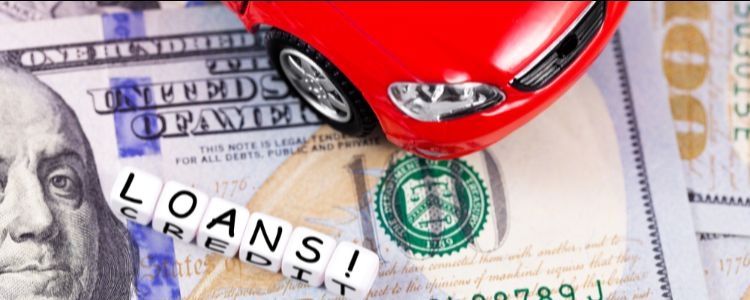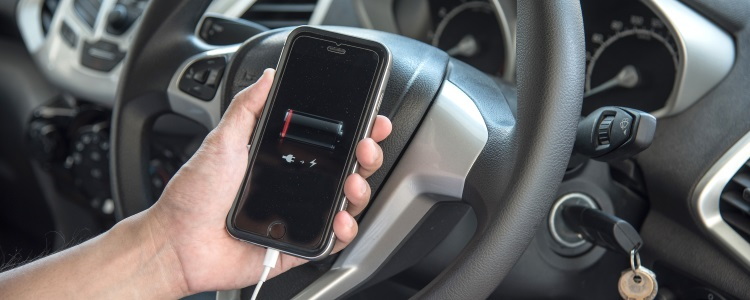Simply put, refinancing auto loans means replacing an existing auto loan contract with another on the same vehicle. This is typically done to save you money on your monthly payment. There's no flat cost to refinance but you may face fees and charges associated with your new loan. These should be minimal compared to your savings though if you play your cards right.
Typically, refinancing isn't something that can be done right away, especially if you took out a bad credit car loan. In order to qualify to refinance your car loan, two things have to happen: your credit score must improve, and enough time has to pass.
Even though refinancing the auto loan on your car may sound like a good idea, there are times when it may not be wise, or possible. Here's a look at some factors that could play a part in choosing the right time and deciding whether or not refinancing makes sense for you.
What Is Refinancing?

Refinancing isn't just new terms on an old auto loan. You're closing out your original loan and signing a new contract while keeping the same vehicle. Refinancing is typically done with a new lender, but even if you were to refinance with your current lender, it'd still be a whole new loan.
The most common reason to consider refinancing is to lower your monthly payment with a lower interest rate and/or a longer-term loan.
Refinancing isn't always an option, though, even if it's been more than a year and your credit score has improved. Lenders have certain rules that have to be met in order for you to be considered to refinance.
General qualifications to refinance car loan include:
- Your loan amount must meet the lender's guidelines.
- Your vehicle has to be less than 10 years old.
- There can't be more than 100,000 miles on your car.
If you're already having trouble keeping up with your payments, and aren't current on your loan, refinancing isn't an option to help you catch up. Your loan must be current in order for you to refinance. Additionally, you can't have negative equity – your vehicle has to be worth at least as much as you owe on your loan, if not more.
When Can You Refinance a Car Loan?
The first key you need in order to be eligible to refinance your auto loan is having a good credit score or at least one that has improved since you took out the original loan. If you originally took out a bad credit car loan, you may be able to refinance if your credit has gone up since signing the contract.
The second key is time, itself. Refinancing is usually only available after you’ve paid at least a year on your original loan.
These two factors go hand in hand if you had bad credit since making all your payments on time for at least the first year of your loan is imperative if you want to refinance for a better interest rate and/or loan term.
It's important to know that you shouldn't just jump at the chance to refinance as soon as you're able if it isn't necessary – it's not something that you do just because. However, if your credit score has improved or interest rates are falling, it might be worth it to see if you can take advantage of this money saver, even if you can handle your current payment.
How To Refinance a Car Loan
To refinance your car you first need to qualify, which means knowing where you stand in terms of credit. You'll also want to gather the information you need about your car and your loan. Refinancing is typically reserved for borrowers with good credit, so if your credit score isn't stellar, you need to check that it's at least higher than when you originally took out your loan.
Next, contact your current lender and get the payoff amount on your loan. You're typically given what's called a 10-day payoff, which includes your loan amount and 10 days of interest charges. You need this information to apply with a new refinancing lender. You also need to know the year, make, and model of your vehicle, its mileage, and whether or not there's equity in your vehicle. If you're in a negative equity position, you aren't eligible to refinance your car.
Finally, it's time to shop for the best rates and terms you can find. You can do this by applying for refinancing with several lenders to see which offer is right for you. This is called rate shopping. When you put in several applications for the same type of credit within a two-week period, only one hard inquiry should impact your credit score even though they all show up on your credit report.
Refinancing is something that is typically recommended only after you've had your loan one to two years. Two years is the sweet spot for refinancing, because it gives you time to improve your credit, and lets lenders see how you've handled your loan. In some cases, though, if you've had your loan for at least one year, and meet all the lender qualifications, refinancing isn't out of the question. However, refinancing may not be right for everyone.
Refinancing Car Loan for a Lower Interest Rate

When you've had your loan for long enough there are still some decisions to make before you jump into refinancing. Not everyone qualifies for refinancing just because they've had their loan for a few years, and not every situation warrants it. Before you dive into refinancing, it's important to ask yourself why you're choosing this option. Has your credit score improved enough to qualify you for a better interest rate? Have overall national interest rates dropped? Maybe your financial situation has changed. Perhaps you need to add or remove a cosigner or co-borrower?
Whatever your reason, the main goal of refinancing should be to lower your monthly auto loan payment. Typically, refinancing is only helpful if you can reduce your loan payment. A lower interest rate is usually the best way to do this; it lowers your monthly payment and saves you money because you're being charged less for the amount you're borrowing.
If you don't qualify for a better interest rate, you may still be able to lower your monthly payment by extending the loan term. However, doing this without reducing the interest rate only lowers your payment. Your monthly payment is less, but you end up paying more for your car, since you're paying interest expenses for a longer period of time. Be aware that you may be stuck in a negative equity position for longer, too.
Does refinancing a car save money?
Here's an example to show how refinancing could help you save.
Let's assume that a borrower takes out a $20,000 loan, with bad credit, and qualifies for a 12% interest rate for 60 months. This borrower is paying $444.89 per month, for a grand total of $26,693 with interest.
Now let's imagine it's been 18 months, and the borrower has already paid $8,008.02 but needs to lower their monthly payment. The borrower applies for refinancing on the remaining balance of their loan, with is just under $12K. At this point, the borrower has 42 months left on the original loan.
Assuming the borrower qualifies for a $12,000 at 10% interest, for 48 months. They're both extending their loan term and qualifying for a lower interest rate, which is a good way to shrink your monthly costs the most. The new loan gives them monthly payments of $304.35, for a total of $14,609. Even with interest, they're saving almost $140 a month and over $4,000 total by refinancing.

Our Take
Refinancing can be a great way to save money on your monthly auto loan costs. But, if refinancing is going to end up costing you more in the long run, you may want to reconsider. If you're thinking about refinancing your vehicle, make sure that you're saving money to make it worthwhile. The best way to do this is to qualify for a loan with a lower interest rate. If you're not sure where to turn to start your refinancing process, we want to help.
Looking for Refinancing or Financing Options?
If you think refinancing might be the best option for you, you can start your search for a lender with our refinance partner here.
But, if your loan or car doesn't meet a lender's requirements, it might be time to look into alternative options, such as trading in your vehicle for a more affordable one. If you're still struggling with credit issues and need a more affordable car, Auto Credit Express wants to help.
We’re teamed up with a large network of special finance dealerships all across the country that have lenders that work with people in many unique credit situations including bad credit, no credit, and bankruptcy. Skip the hassle of searching for one of these dealers, and start here instead. Simply fill out our fast and free auto loan request form, and we'll get to work finding a dealership near you.



















